Retro Replay Review
Gameplay
The Witcher: VS brings the iconic Witcher license into a turn-based, browser-based battler that pits you against real opponents in tactical duels. From the moment you sign up, you’re presented with three distinct classes—Witcher, Sorceress, and Frightener—each with unique attributes and skill trees. While the option to switch classes mid-game exists, the steep cost ensures that most players will commit to a single archetype, fostering specialization and long-term progression.
(HEY YOU!! We hope you enjoy! We try not to run ads. So basically, this is a very expensive hobby running this site. Please consider joining us for updates, forums, and more. Network w/ us to make some cash or friends while retro gaming, and you can win some free retro games for posting. Okay, carry on 👍)
Combat revolves around carefully planning attack and defense sequences across multiple slots. You’ll need to balance strong, fast, magic, and special skills, while also managing fury and energy resources. The thrill comes from predicting your opponent’s strategy—will they lean on brute force, magical onslaughts, or deceptive feints? Because each choice can counter another, battles feel like a chess match where fortune and foresight share equal weight.
At higher levels, new slots unlock, allowing for more complex combinations and deeper tactical layers. Whether you invest in chaining weak, low-cost attacks or focus on fewer, devastating blows, the system rewards experimentation and builds character identity. Between fights, you’ll spend time on your profile screen customizing gear, upgrading skills, and purchasing amulets or weapons using Oren, the in-game currency. This persistent progression loop keeps each duel feeling meaningful and drives you to refine your build.
Challenges can be issued or received at any time, and pending matches offer email notifications to keep you engaged even when you’ve stepped away from the browser. Every duel outcome feeds into global ranking lists, so you’re constantly measuring your prowess against players at your level. Combined with an in-game chat lobby, The Witcher: VS fosters a competitive community where tactics and banter flow freely.
While this game lacks the real-time action of its Windows counterpart, its strategic depth more than compensates. The wait times inherent in asynchronous play can feel slow if you’re used to instant results, but the anticipation of seeing your strategy unfold in a fully animated replay adds its own excitement. If you enjoy turn-based duels that reward both planning and adaptation, this title will keep you engaged for hours.
Graphics
As a browser title, The Witcher: VS doesn’t deliver console-level visuals, but it punches above its weight with hand-drawn character portraits and rich environmental backdrops. The UI is clean and thematic, evoking the gritty, Slavic-inspired world of the Witcher universe. Buttons, menus, and status indicators are all intuitively placed, so you spend more time plotting your next move and less time hunting through screens.
When a duel begins, the action transitions into a fully animated, third-person sequence. Characters execute attacks and defenses with fluidity, accompanied by sound effects that range from the clang of steel to crackling spell energies. While these replays are non-interactive, they bring your turn-based plans to life and reward you with satisfying visuals that underscore the strengths of your chosen strategy.
Graphical fidelity scales with level, as new gear you purchase or unlock can change your character’s appearance. Upgraded weapons glow with enchantments, and armor sets carry intricate designs that mark your progression. Minor loading times between screens are noticeable but brief, ensuring the overall experience remains relatively seamless given the browser limitations.
Though you won’t find photo-realistic textures or ray tracing here, the art direction faithfully captures the Witcher series’ dark fantasy vibe. Effects like swirling magical auras or the flash of a deadly blade strike feel impactful, even in a mid-browser window. For fans of the license, these details provide enough immersion to keep you invested in every fight.
Ultimately, The Witcher: VS proves that strong artistic direction and well-executed animations can compensate for limited technical muscle. The game’s visuals serve the gameplay beautifully, making each duel both a strategic contest and a mini cinematic showcase.
Story
Unlike traditional Witcher titles, The Witcher: VS does not offer an expansive, narrative-driven campaign. Instead, the story is woven into the multiplayer framework: you are an emerging champion in a world where duels determine reputation, wealth, and skill. This approach shifts the spotlight from Geralt of Rivia’s personal journey to your own climb through the ranks of elite combatants.
Background lore comes through brief mission descriptions, class introductions, and the in-game item text—amulets, potions, and artifacts carry snippets of world-building that hint at larger political intrigues and arcane secrets. While you won’t explore Velen swamps or Nilfgaardian battlefields in a linear story, each duel feels like a chapter in your character’s saga, enriched by the Witcher universe’s familiar themes of morality, power, and survival.
The lack of a traditional single-player narrative might disappoint those seeking deep story beats. However, the multiplayer environment itself becomes the crucible for storytelling: rivalries form, alliances emerge in chat lobbies, and your personal legend is told through battle records and ranking achievements. The game’s pacing encourages you to craft your own epic, one duel at a time.
Seasonal events and special challenges occasionally introduce limited-time lore elements, giving players a taste of novel story content that ties into the broader Witcher mythos. These events can feel lightweight compared to full expansions, but they keep the world feeling alive and responsive to player activity.
If you approach The Witcher: VS expecting a pen-and-paper RPG or blockbuster narrative, you’ll find the story framework lean. Yet for those who relish emergent storytelling driven by player interactions and strategic victories, the game offers a unique way to experience the Witcher world without lengthy cutscenes or scripted quests.
Overall Experience
The Witcher: VS carves out its own niche by merging browser convenience with the rich lore of the Witcher universe. Its core strength lies in competitive, turn-based battles that reward both tactical acumen and adaptability. With an intuitive interface, robust skill trees, and a persistent progression system, the game encourages you to dive back in to optimize your build and climb the leaderboards.
The social components—rankings, chat lobbies, and challenge notifications—create a living community where you can forge rivalries or friendships. While asynchronous play means you might wait for opponents to respond, the e-mail notifications and quick animations ensure that downtime never feels wasted. This pacing makes it perfect for shorter sessions during coffee breaks or longer strategic deep-dives on weekends.
On the flip side, the free-to-play economy can feel restrictive if you don’t manage your Oren carefully. High-cost class changes and level-locked gear mean you’ll need to grind or consider microtransactions to stay competitive at the highest tiers. That said, the game remains enjoyable and fair for players who are willing to invest time rather than money.
Ultimately, The Witcher: VS delivers a compelling alternative to action-oriented Witcher adventures. It reimagines the series as a cerebral duel simulator, complete with animated replays and meaningful progression. Fans of strategic turn-based play and the Witcher license will find plenty to love, while newcomers can easily grasp the mechanics and start forging their legend.
Whether you’re seeking quick, tactical thrills or a long-term climb up the rankings, The Witcher: VS offers solid, engaging gameplay wrapped in a familiar dark fantasy aesthetic. It may deviate from the epic narratives of its single-player brethren, but its blend of competitive depth and community-driven storytelling makes it a browser game worth your time.
 Retro Replay Retro Replay gaming reviews, news, emulation, geek stuff and more!
Retro Replay Retro Replay gaming reviews, news, emulation, geek stuff and more!
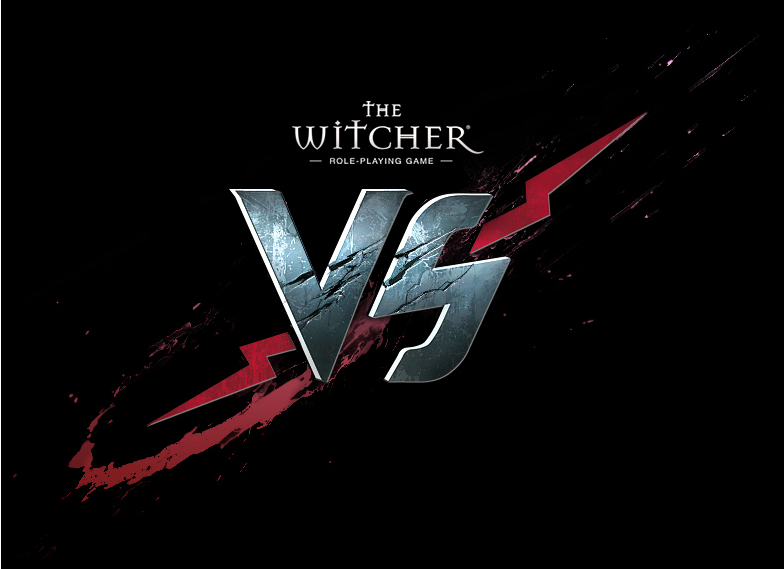
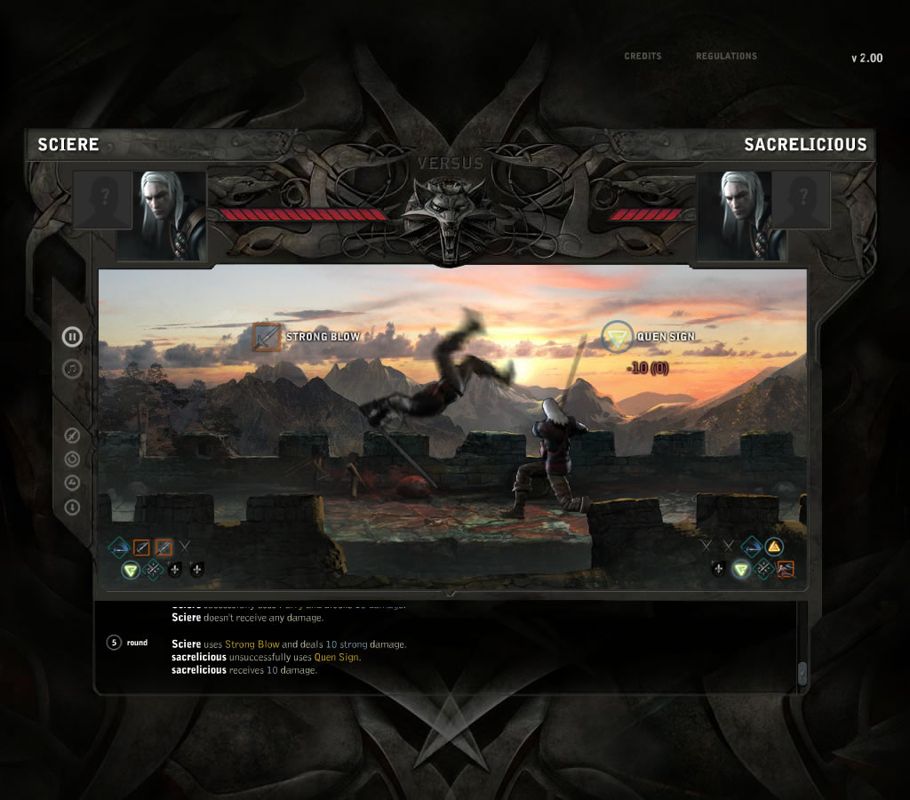
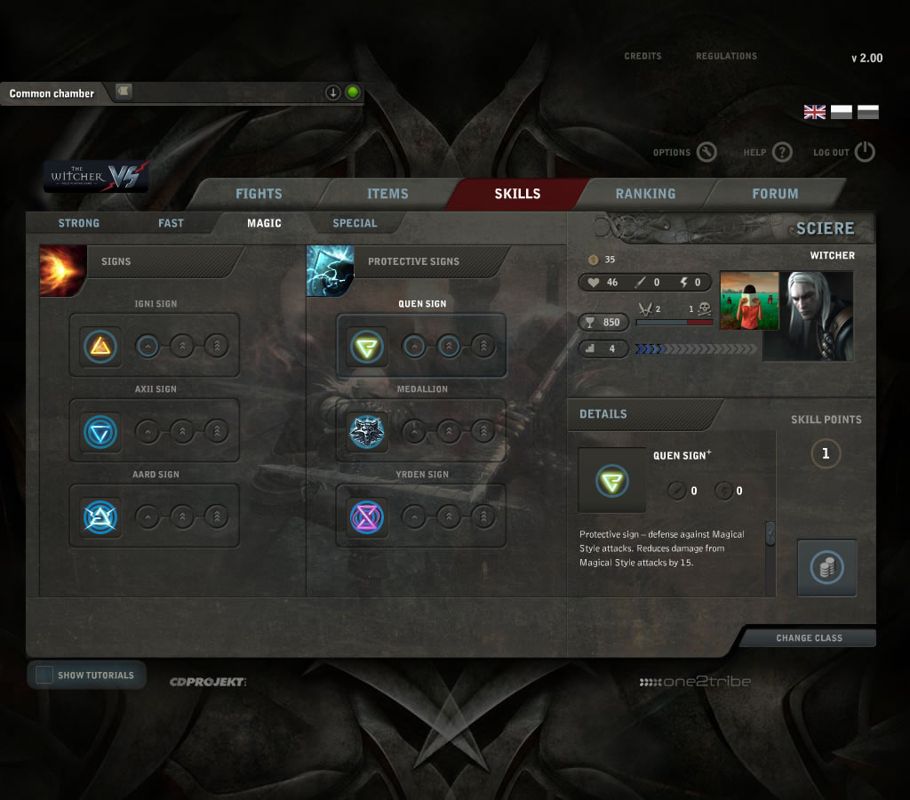
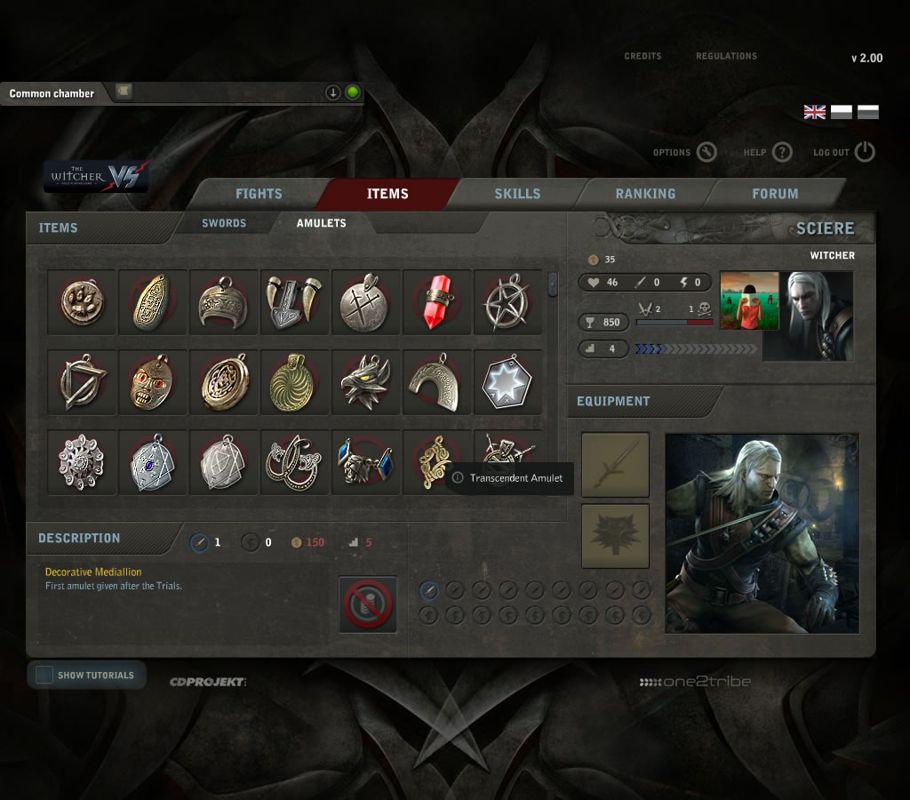
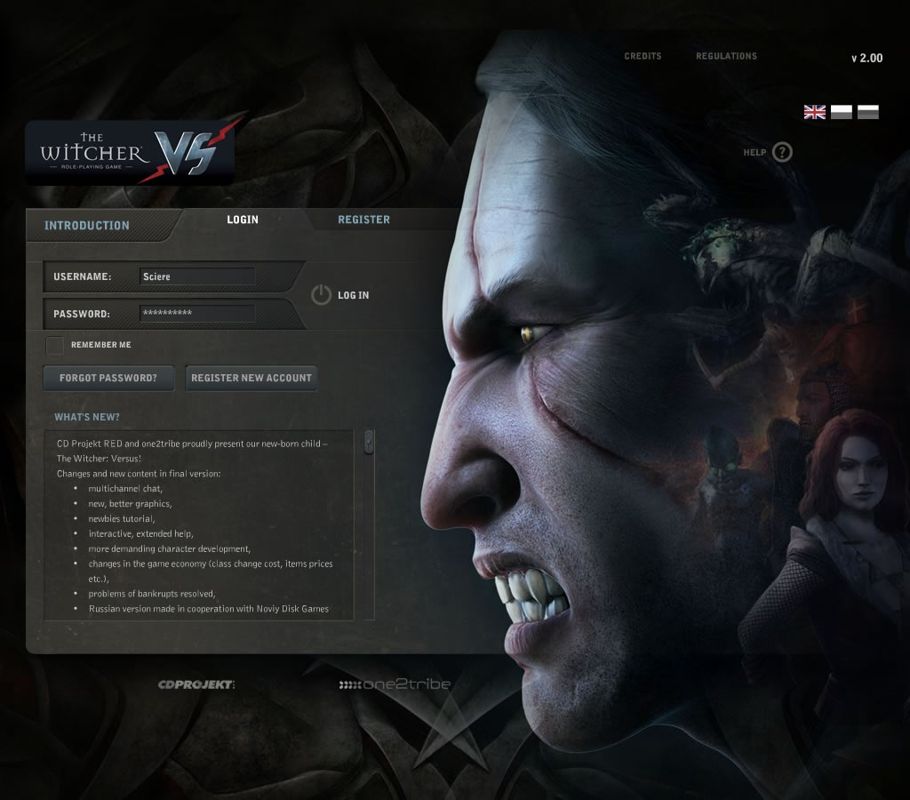
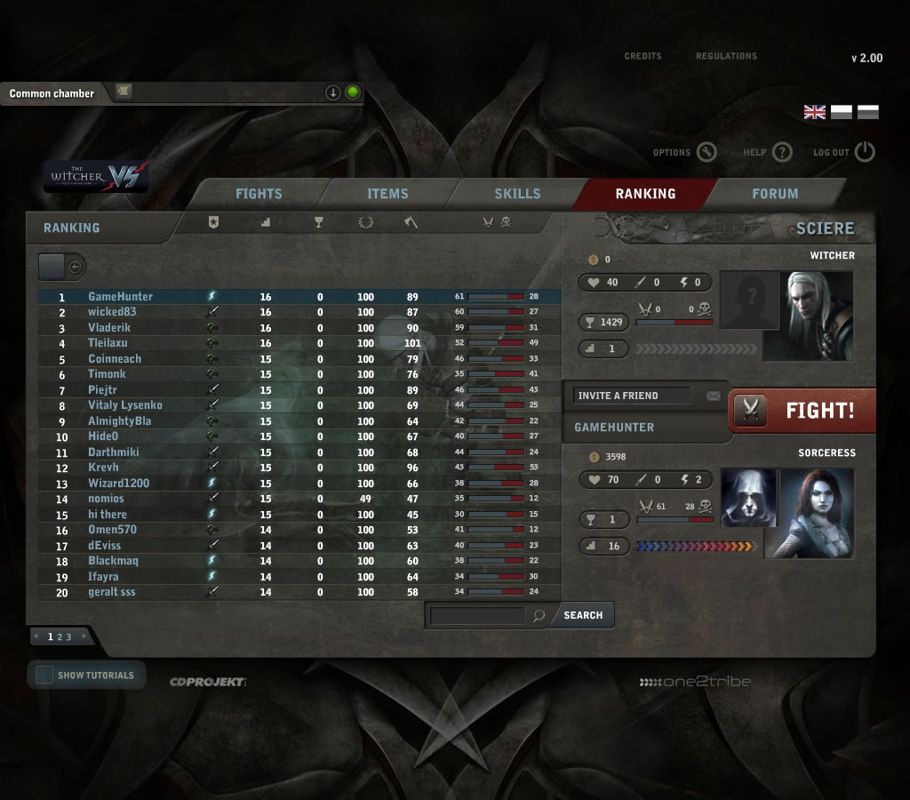



Reviews
There are no reviews yet.